The LG G8 ThinQ is here: air gestures, palm reading, and Portrait Mode on video!
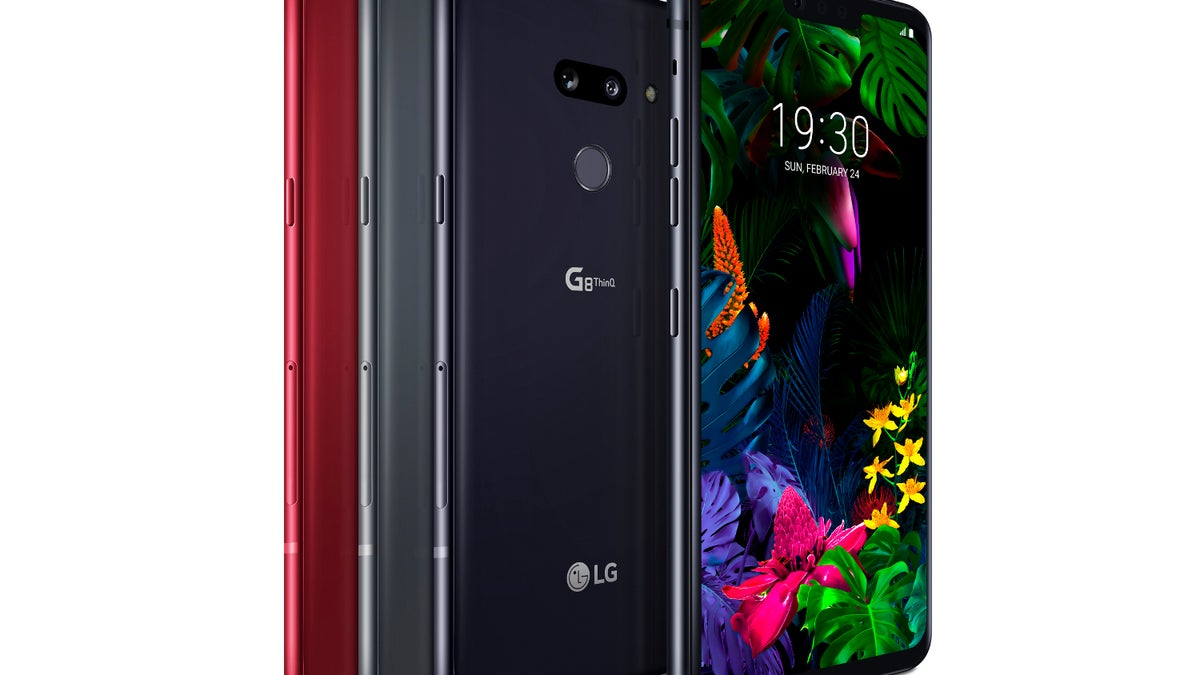
It's LG's turn to awe us here at MWC and the company has just announced the LG G8 ThinQ — its 2019 flagship for the masses. The new phone builds on the G7 and adds some nifty new features, such as a ToF camera and air gestures. Let's take a look!
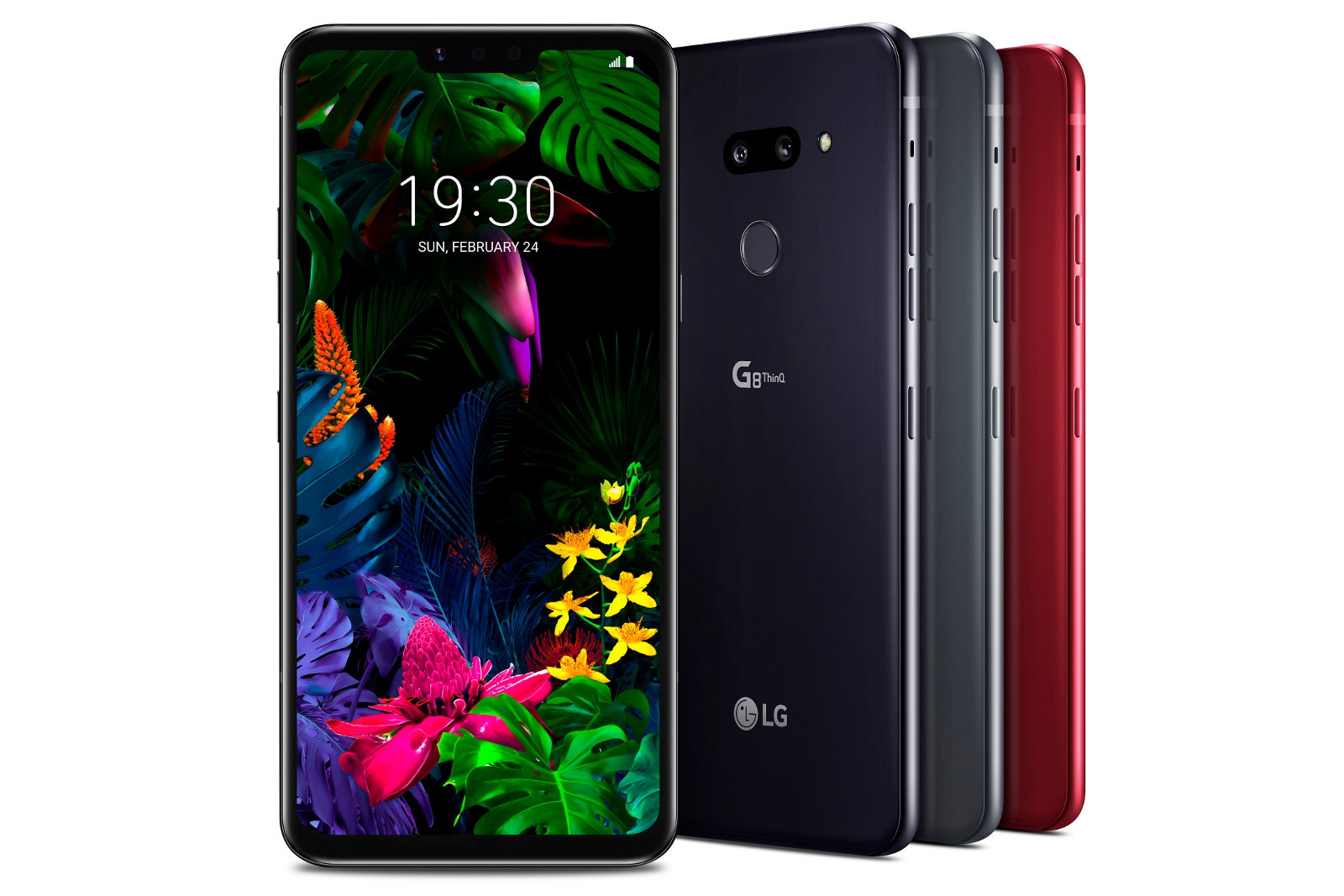
The LG G8 ThinQ looks a lot like last year's LG G7 ThinQ. Its sides are a bit curvier and its camera module on the back has been turned horizontally again. This time, the camera's profile is completely flush, with no bumps or hills on the back.
There's still a fingerprint scanner back there and a glass panel as well, as the phone still supports wireless charging.
A new addition to the G line is the display panel — instead of sticking to LCD, the LG G8 ThinQ now sports a 6.1-inch OLED screen up front, still sporting a crisp resolution of 1,440 x 3,120. And it's a special one, too — LG calls it the "Crystal Sound OLED" as it's capable of vibrating like a speaker diaphragm, essentially acting as an earpiece. So yes, this phone does not have a speaker on the front, you will need to press your ear against the display during calls.
The best part? LG did put its Boombox speaker on the bottom, but the phone will also vibrate the Crystal Sound OLED to give you a sort of stereo experience when consuming multimedia!
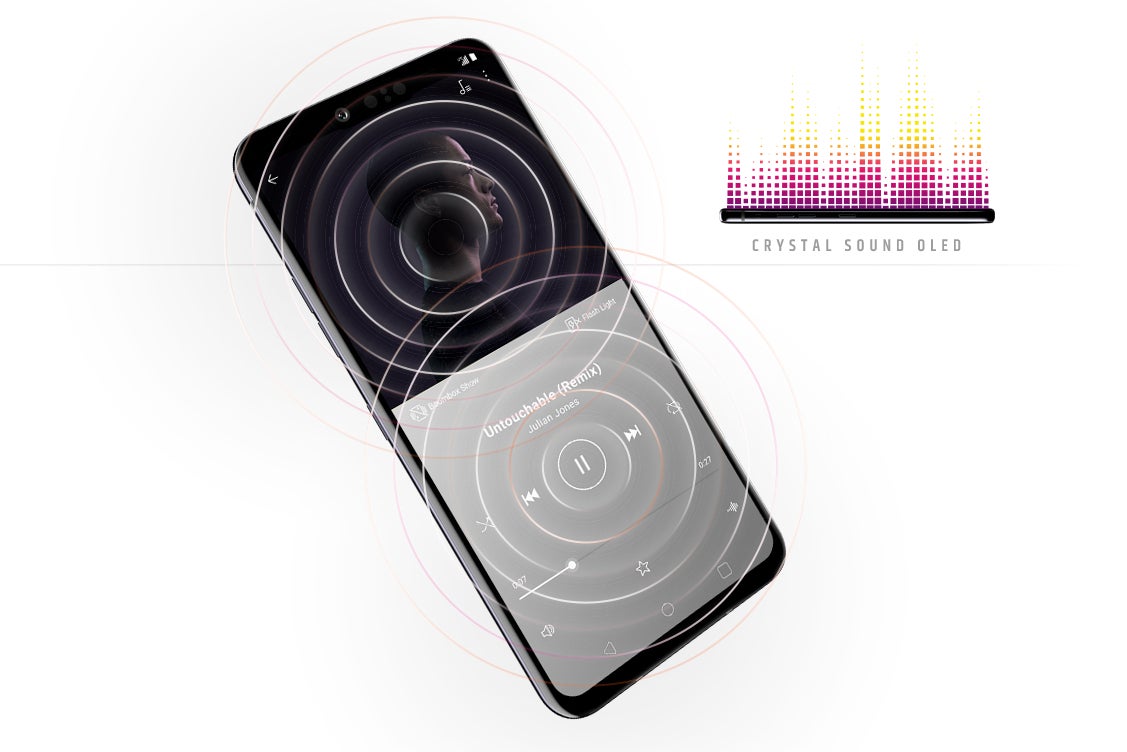
It's still a rather compact phone, easy to hold and use with one hand. Here's a quick size comparison with the LG G7, Galaxy S10, and iPhone XR:
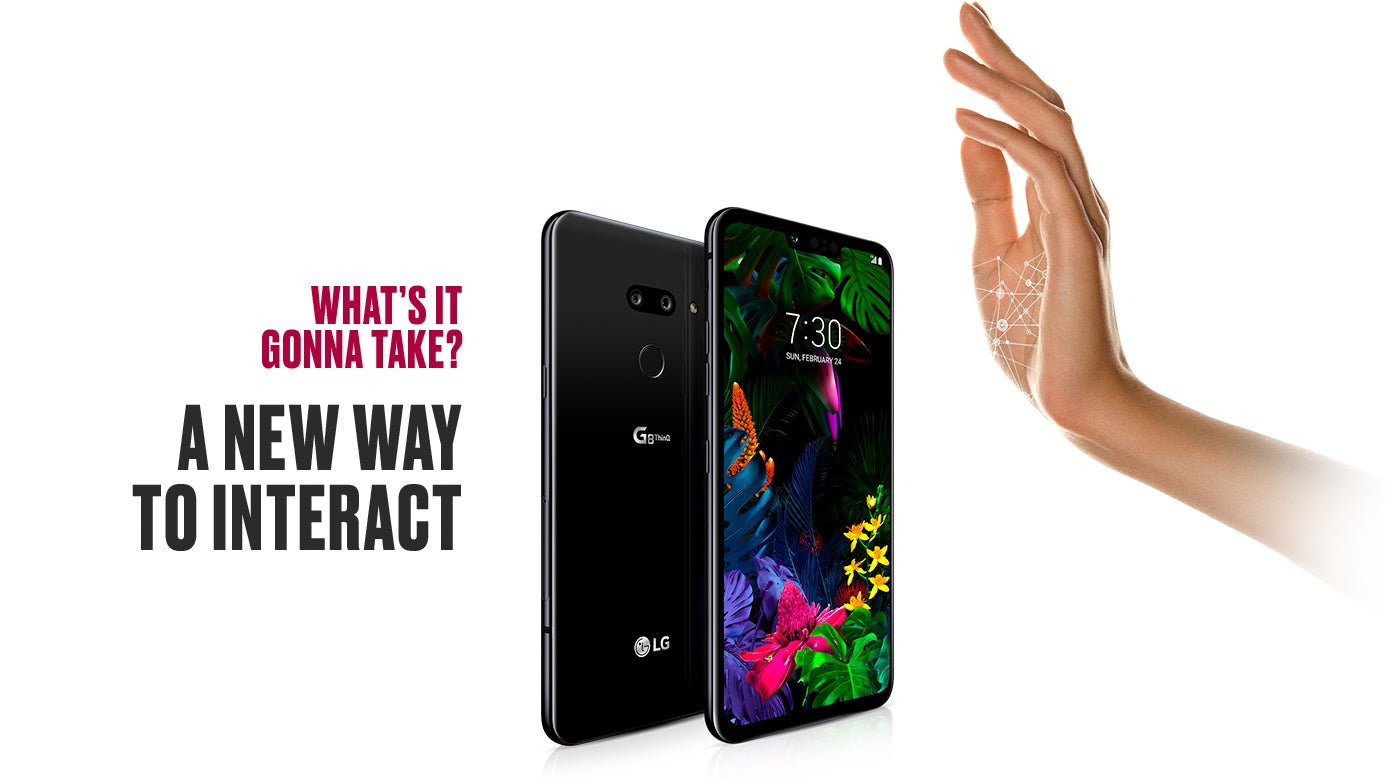
The LG G8 ThinQ has a new camera module up front called the Z Camera. It utilizes a ToF (Time of Flight) sensor to quickly and reliably create depth maps of whatever objects it's looking at.
For example, the LG G8 ThinQ can scan your hand down to the veins in your palm. This is used as a biometric unlocking feature — show the phone your palm and it unlocks. The G8 will also support facial recognition through the Z Camera. And no, it's not affected by lighting conditions, so it should, in theory, be as reliable as Face ID.
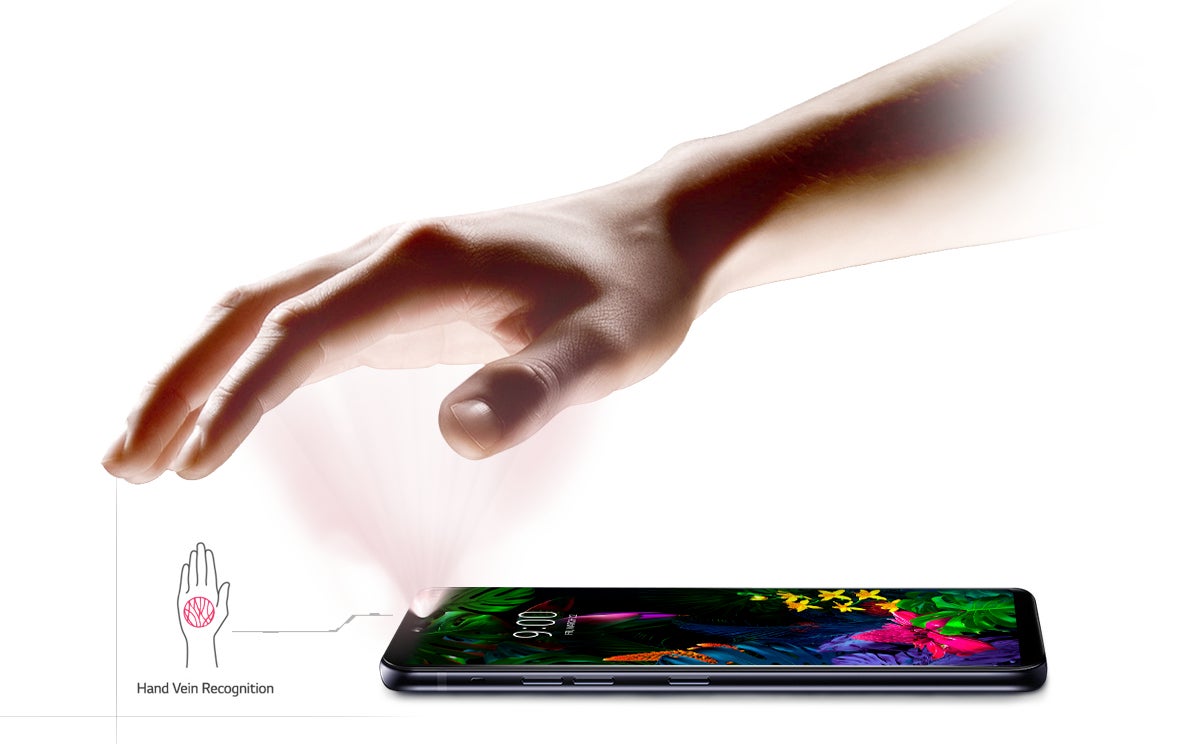
But that's not all — a new Air Motion feature will allow you to interact with the phone by just waving your hand in front of the selfie camera. You will be able to take or reject calls, switch apps, take screenshots, or change volume without touching your phone. That'd be useful when cooking or cleaning, for example.
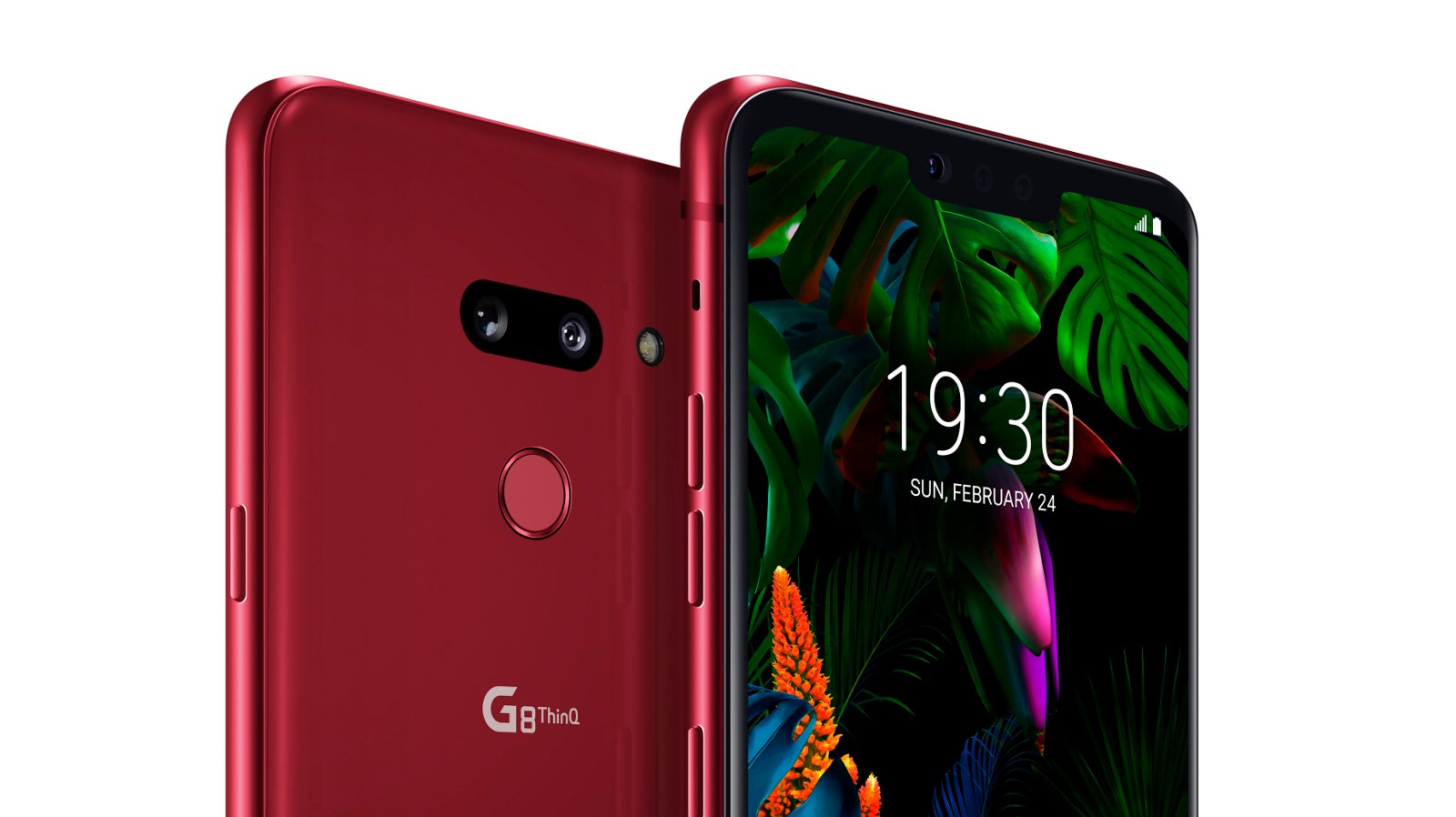
We still have "only" two cameras at the back of the LG G8 ThinQ — a 12 MP standard and 16 MP super-wide-angle one. The main camera has a very wide aperture of F1.5 and the sensor has 1.4μm pixels. In the smartphone world — these are considered big and contribute towards better night shots, as they collect more light. The wide-angle camera has an F1.9 aperture and 1.0 μm pixels on the sensor.
We do have new software features to enjoy! The so-called "Video Portrait" mode will take that faux bokeh effect we've seen on photos over the past 4 years and apply it to video in real time. LG utilizes what it calls a Dual FOV technology to capture multiple fields of depth — that should make for some pretty awesome cinematic shots if it works out right!
The selfie snapper on the front has an 8 MP sensor with an F1.7 aperture and 1.22 μm pixels. It's neighbored by the Z Camera (ToF camera), which is there for depth-perception only.
The LG G8 ThinQ is powered by the latest-and-greatest Qualcomm Snapdragon 855 SoC, has 6 GB of RAM, and 128 GB of storage, which you can expand with a microSD card of up to 2 TB. The lights are kept on by a rather large, 3,500 mAh battery.
Design and display

The LG G8 ThinQ looks a lot like last year's LG G7 ThinQ. Its sides are a bit curvier and its camera module on the back has been turned horizontally again. This time, the camera's profile is completely flush, with no bumps or hills on the back.
A new addition to the G line is the display panel — instead of sticking to LCD, the LG G8 ThinQ now sports a 6.1-inch OLED screen up front, still sporting a crisp resolution of 1,440 x 3,120. And it's a special one, too — LG calls it the "Crystal Sound OLED" as it's capable of vibrating like a speaker diaphragm, essentially acting as an earpiece. So yes, this phone does not have a speaker on the front, you will need to press your ear against the display during calls.

It's still a rather compact phone, easy to hold and use with one hand. Here's a quick size comparison with the LG G7, Galaxy S10, and iPhone XR:
It's all in the hands!

The LG G8 ThinQ has a new camera module up front called the Z Camera. It utilizes a ToF (Time of Flight) sensor to quickly and reliably create depth maps of whatever objects it's looking at.

But that's not all — a new Air Motion feature will allow you to interact with the phone by just waving your hand in front of the selfie camera. You will be able to take or reject calls, switch apps, take screenshots, or change volume without touching your phone. That'd be useful when cooking or cleaning, for example.
Camera and hardware

We still have "only" two cameras at the back of the LG G8 ThinQ — a 12 MP standard and 16 MP super-wide-angle one. The main camera has a very wide aperture of F1.5 and the sensor has 1.4μm pixels. In the smartphone world — these are considered big and contribute towards better night shots, as they collect more light. The wide-angle camera has an F1.9 aperture and 1.0 μm pixels on the sensor.
The selfie snapper on the front has an 8 MP sensor with an F1.7 aperture and 1.22 μm pixels. It's neighbored by the Z Camera (ToF camera), which is there for depth-perception only.
The LG G8 ThinQ is powered by the latest-and-greatest Qualcomm Snapdragon 855 SoC, has 6 GB of RAM, and 128 GB of storage, which you can expand with a microSD card of up to 2 TB. The lights are kept on by a rather large, 3,500 mAh battery.
Aside from the stereo sound emitted by the Crystal Sound screen, there's also a quad Hi-Fi DAC on board. Now, this has been an LG staple for a while, so no surprises here — the company still caters to the audiophiles!
Unfortunately, LG didn't disclose any launch or pricing details at this time. The phone will be "available soon" and pricing will be region-specific. So, stay tuned until the carriers announce their LG G8 ThinQ offers.
Here's how the G8 ThinQ fares versus the Samsung Galaxy S10 and Nokia 9 PureView!
|
|
|
|
| LG G8 ThinQ | Samsung Galaxy S10 | Nokia 9 PureView |
| Dimensions | ||
|---|---|---|
| 5.98 x 2.83 x 0.33 inches 151.9 x 71.8 x 8.4 mm |
5.90 x 2.77 x 0.31 inches 149.9 x 70.4 x 7.8 mm |
6.10 x 2.95 x 0.31 inches 155 x 75 x 8 mm |
| Weight | ||
| 5.89 oz / 167.0 g | 5.54 oz / 157.0 g | 6.07 oz / 172.0 g |
| Materials | ||
| Back: Glass (Corning Gorilla Glass 6) Frame: Aluminum | Back: Glass (Corning Gorilla Glass 5) Frame: Aluminum | Back: Glass (Corning Gorilla Glass 5) Frame: Aluminum |
| Resistance | ||
| Water, Dust; IP68; MIL-STD-810 certified | Water, Dust; IP68 | Water, Dust; IP67 |
| Biometrics | ||
| 3D Face unlock, Fingerprint (touch) | 2D Face unlock, Ultrasonic in-screen fingerprint | 2D Face unlock, Optical in-screen fingerprint |
| Keys | ||
| Left: Volume control; Right: Lock/Unlock key | Left: Volume control, Other; Right: Lock/Unlock key | Right: Volume control, Lock/Unlock key |
| Colors | ||
| Aurora black, Platinum gray, Carmine red | Prism blue, Prism black, Prism white, Prism green, Flamingo pink | Blue |
| Size | ||
|---|---|---|
| 6.1-inch, 83.66% screen-to-body | 6.1-inch, 88.66% screen-to-body | 6.0-inch, 79.76% screen-to-body |
| Type | ||
| OLED, HDR, 600 nits | Dynamic AMOLED, HDR | P-OLED, HDR |
| Resolution | ||
| 3120x1440px, 19.5:9 ratio, 563 PPI | 3040x1440px, 19:9 ratio, 550 PPI | 2880x1440px, 18:9 ratio, 538 PPI |
| Protection | ||
| Corning Gorilla Glass 5 | Corning Gorilla Glass 6 | Corning Gorilla Glass 5 |
| System chip | ||
|---|---|---|
| Snapdragon 855 (7 nm) | Snapdragon 855 (7 nm) | Snapdragon 845 SDM845 (10 nm) |
| Processor | ||
| Octa-core 2840 MHz Kryo 485 | Octa-core Kryo 485 | Octa-core 2800 MHz Kryo 385 |
| GPU | ||
| Adreno 640 | Adreno 640 | Adreno 630 |
| Memory | ||
| 6GB (LPDDR4)/128GB | 8GB (LPDDR4)/128GB 8GB/512GB |
6GB (LPDDR4)/128GB |
| Storage expansion | ||
| microSDXC up to 2000 GB | microSDXC up to 512 GB | |
| OS | ||
| Android (9.0 Pie) | Android (11, 10, 9.0 Pie) | Android (10, 9.0 Pie) |
| Type | ||
|---|---|---|
| 3500 mAh, Li - Polymer | 3400 mAh, Li - Ion | 3320 mAh, Li - Polymer |
| Charging | ||
| Qualcomm Quick Charge 3.0, USB Power Delivery Qi wireless charging |
Qualcomm Quick Charge 2.0, USB Power Delivery, Samsung Adaptive Fast Charging Qi and Powermat wireless charging, Reverse wireless charging |
Qualcomm Quick Charge 3.0, USB Power Delivery Qi and Powermat wireless charging |
| Rear | ||
|---|---|---|
| Dual camera | Triple camera | Penta camera |
| Main camera | ||
| 12 MP (OIS, PDAF) Aperture size: F1.5 Focal length: 27 mm Sensor size: 1/2.6" Pixel size: 1.4 μm | 12 MP (OIS, PDAF) Aperture size: F1.5/F2.4 Focal length: 26 mm Sensor size: 1/2.55" Pixel size: 1.4 μm | 12 MP (Autofocus) Aperture size: F1.8 Focal length: 28 mm Sensor size: 1/2.8" Pixel size: 1.25 μm |
| Second camera | ||
| 16 MP (Ultra-wide) Aperture size: F1.9 Focal Length: 16 mm Sensor size: 1/3.1" Pixel size: 1 μm | 16 MP (Ultra-wide) Aperture size: F2.2 Focal Length: 12 mm Sensor size: 1/3.1" Pixel size: 1 μm | 12 MP (Autofocus) Aperture size: F1.8 Focal Length: 28 mm Sensor size: 1/2.8" Pixel size: 1.25 μm |
| Third camera | ||
| 12 MP (Telephoto, OIS, PDAF) Optical zoom: 2.0x Aperture size: F2.4 Focal Length: 52 mm Sensor size: 1/3.6" Pixel size: 1 μm |
12 MP (Black and White, Autofocus) Aperture size: F1.8 Focal Length: 28 mm Sensor size: 1/2.8" Pixel size: 1.25 μm |
|
| Fourth camera | ||
| 12 MP (Black and White, Autofocus) Aperture size: F1.8 Focal Length: 28 mm Sensor size: 1/2.8" Pixel size: 1.25 μm |
||
| Fifth camera | ||
| 12 MP (Black and White, Autofocus) Aperture size: F1.8 Focal Length: 28 mm Sensor size: 1/2.8" Pixel size: 1.25 μm |
||
| Flash | ||
| LED | LED | Dual LED |
| Video recording | ||
| 4K UHD (60 fps), 1080p (60 fps), 720p (240 fps) HDR, Time-lapse video, EIS, Video calling, Video sharing | 4K UHD (60 fps), 1080p (240 fps), 720p (960 fps) HDR, Time-lapse video, Hyperlapse, Picture-taking during video recording, Video light, EIS, Video calling, Video sharing | 4K UHD (30 fps) HDR, Video calling, Video sharing |
| Front | ||
| 8 MP (Dual-Camera, Autofocus) Video capture: 1080p |
10 MP (Autofocus, HDR) Video capture: 4K UHD |
20 MP |
| Bluetooth | ||
|---|---|---|
| 5.0 | 5.0 | 5.0 |
| WLAN | ||
| a,b,g,n,ac,dual-band MIMO, Wi-Fi Direct, Hotspot 802.11 a, b, g, n, ac | a,b,g,n,ac,Wi-Fi 6,dual-band MIMO, Wi-Fi Direct, Hotspot 802.11 a, b, g, n, ac, ax |
a,b,g,n,ac,dual-band MIMO, Wi-Fi Direct, Hotspot 802.11 a, b, g, n, ac |
| USB | ||
| Type-C, USB 3.1 | Type-C, USB 3.1 | Type-C, USB 3.1 |
| Sensors | ||
| Accelerometer, Gyroscope, Compass, Barometer, Ambient light sensor, Proximity sensor | Accelerometer, Gyroscope, Compass, Hall (for flip covers), Heart rate, Barometer, Ambient light sensor, Proximity sensor | Accelerometer, Gyroscope, Compass, Hall (for flip covers), Barometer, Ambient light sensor, Proximity sensor |
| Hearing aid compatible | ||
| M4/T3 | M4/T4 | |
| Location | ||
| GPS, A-GPS, Glonass, Cell ID, Wi-Fi positioning | GPS, A-GPS, Glonass, Galileo, BeiDou, Cell ID, Wi-Fi positioning | GPS, A-GPS, Glonass, BeiDou, Cell ID, Wi-Fi positioning |
| Other | ||
| NFC, UMA (Wi-Fi Calling) | NFC, ANT+ | NFC, ANT+, VoIP, Tethering, Computer sync, OTA sync |
| Headphones | ||
|---|---|---|
| 3.5mm jack | 3.5mm jack | No 3.5mm jack |
| Speakers | ||
| Earpiece, Multiple speakers | Earpiece, Multiple speakers | Earpiece, Loudspeaker |
| Features | ||
| 32-Bit DAC, DTS:X Virtual Surround, aptX-HD | 32-Bit DAC, Dolby Atmos, aptX-HD | Album art cover, Background playback |
| Screen mirroring | ||
| DLNA,Wireless screen share,MirrorLink | Wireless screen share | |
| Radio | ||
| FM | ||
| Additional microphone(s) | ||
| Noise cancellation, Video recording | Noise cancellation | |
| LTE Bands | ||
|---|---|---|
| 1, 2, 3, 4, 5, 7, 8, 12, 13, 14, 17, 20, 25, 26, 28, 29, 30, 66, 71 | 1, 2, 3, 4, 5, 7, 8, 12, 13, 14, 17, 18, 19, 20, 25, 26, 28, 29, 30, 66, 71 | 1, 2, 3, 4, 5, 7, 8, 20, 28 |
| TDD Bands | ||
| 38, 39, 40, 41, 46 | 38, 39, 40, 41, 46 | 34, 38, 39, 40, 41 |
| 3G Bands | ||
| 1, 2, 4, 5, 8 | 1, 2, 4, 5, 8 | 1, 2, 5, 8 |
| Data Speed | ||
| LTE-A Pro Cat 20 (2000/150 Mbit/s), HSDPA+ (4G) 42.2 Mbit/s, HSUPA 5.76 Mbit/s | LTE-A Pro Cat 20 (2000/150 Mbit/s), HSDPA+ (4G) 42.2 Mbit/s, HSUPA 5.76 Mbit/s | LTE-A Pro Cat 16 (1000/150 Mbit/s), HSDPA+ (4G) 42.2 Mbit/s, HSUPA 5.76 Mbit/s |
| SIM type | ||
| Nano SIM | Nano SIM | Nano SIM |
| HD Voice | ||
| Yes | Yes | |
| FCC approval | ||
|---|---|---|
| Date approved: Feb 15, 2019 FCC ID value: ZNFG820UM | Date approved: Feb 01, 2019 FCC ID value: A3LSMG973U | |
| Measured SAR | ||
| Head: 0.98 W/kg Body: 0.95 W/kg Simultaneous Transmission: 1.59 W/kg Wireless Router: 1.29 W/kg Phablet: 3.88 W/kg |
Head: 0.39 W/kg Body: 1.37 W/kg Simultaneous Transmission: 1.59 W/kg Wireless Router: 1.35 W/kg Phablet: 3.99 W/kg |
|
| Officially announced | ||
|---|---|---|
| Feb 24, 2019 | Feb 20, 2019 | Feb 24, 2019 |
| Prices (MSRP) | ||
| $820 | 8GB/128GB - $900 | $699 |
See the full
LG G8 ThinQ vs Samsung Galaxy S10 vs Nokia 9 PureView specs comparison
or compare them to other phones using our
Phone Comparison tool
Software
As one might expect, LG's latest flagship is coming with Android 9 Pie on board. Of course, it's heavily skinned with LG's interface on top. We are curious to find out how LG implemented the gesture controls of Pie — does it go with the standard gesture pill, or would it implement something iPhone-esque?
As for software updates, all we have to go on is a promise — in early 2018, LG launched the Software Upgrade Center, which is a branch of the company specifically tasked with bringing timely software updates to customers' devices. LG said it is comitted to playing the long game, we've yet to see some proof. Maybe this year's phones will be the testbed?
Price and release date
Unfortunately, LG didn't disclose any launch or pricing details at this time. The phone will be "available soon" and pricing will be region-specific. So, stay tuned until the carriers announce their LG G8 ThinQ offers.
Follow us on Google News
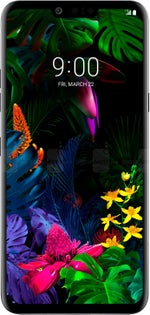

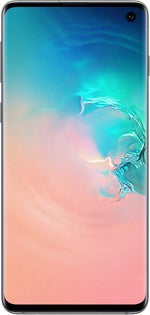
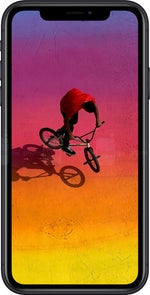






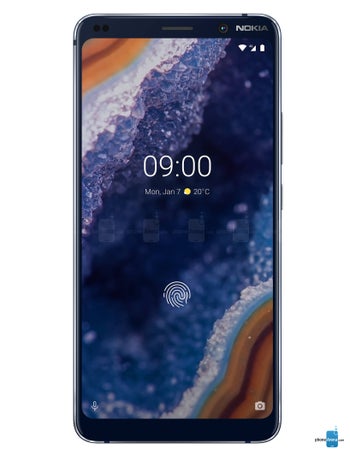








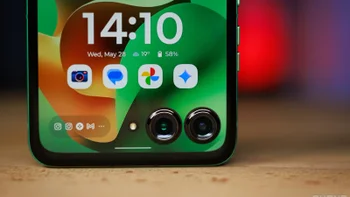
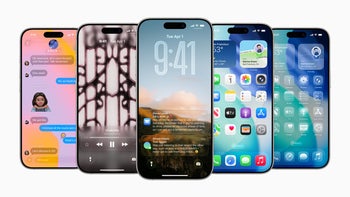
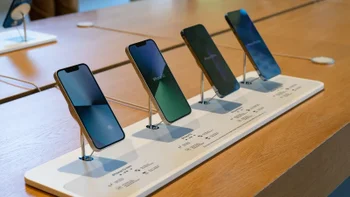
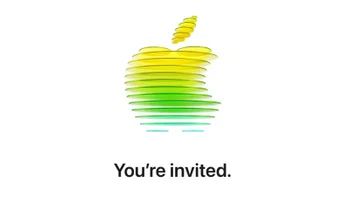
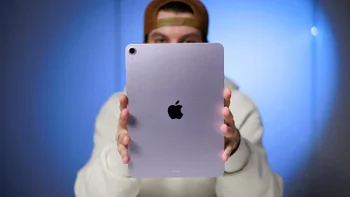
Things that are NOT allowed:
To help keep our community safe and free from spam, we apply temporary limits to newly created accounts: